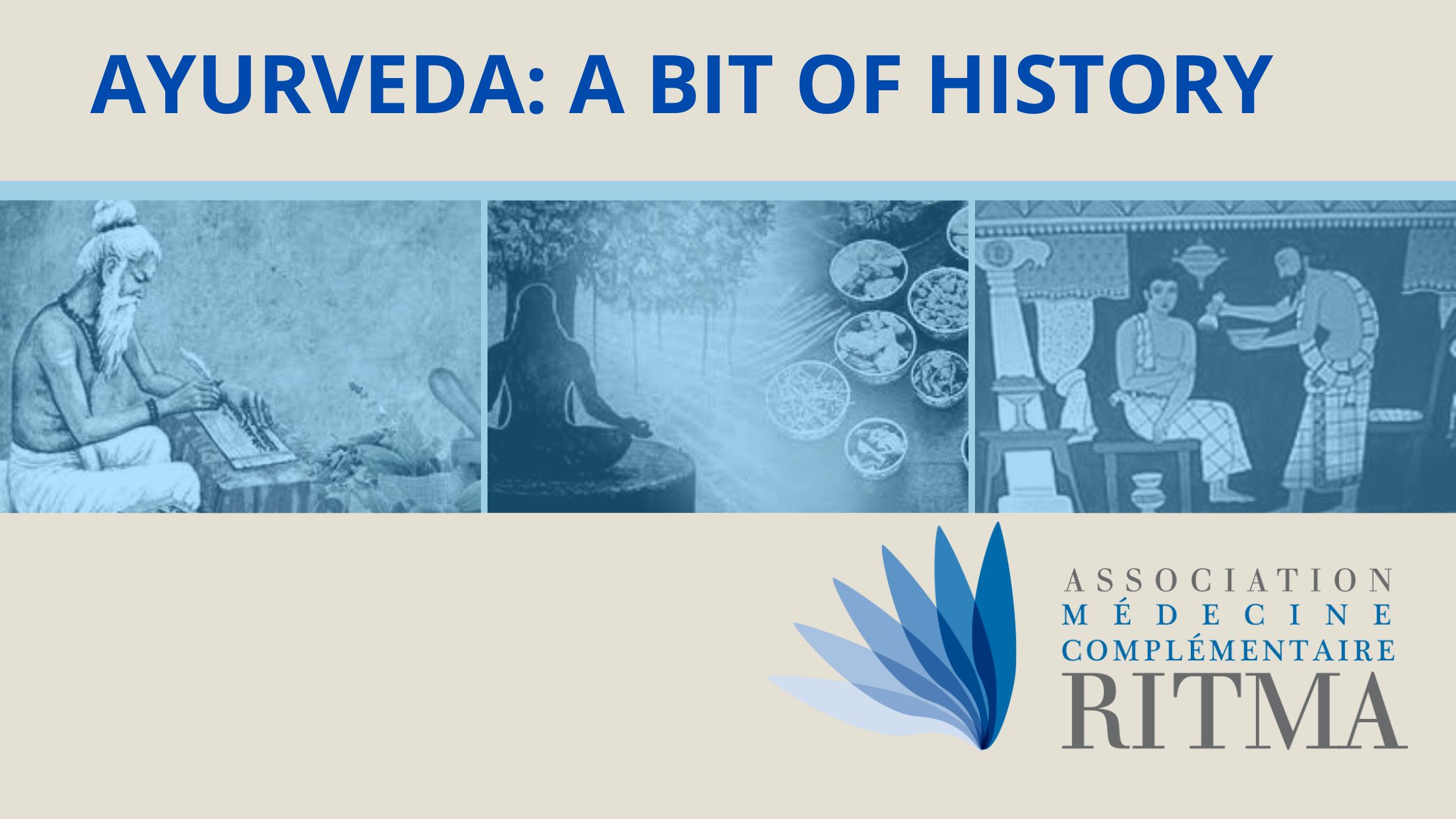
Chronicles
18 January 2023
Ayurveda: A Little History

Ayurveda is a traditional Indian medicine that dates back over 5000 years. It was developed in ancient India and is still widely used today in India and other parts of Asia. The word Ayurveda is derived from the Sanskrit words "ayus" meaning "life" and "veda" meaning "knowledge" or "science", so the literal translation of Ayurveda is "science of life". This medicine is based on the concept that health depends on the balance of the three "doshas" or fundamental energies of the body: Vata, Pitta and Kapha.
Ayurveda is based on the idea that every living being is composed of five fundamental elements: space, air, fire, water and earth. These elements are combined to form the three doshas, or main life forces of the body: Vata, Pitta and Kapha. Each of these doshas is associated with specific qualities and functions in the body, and it is believed that health can be maintained by balancing these doshas.
Ayurveda also considers the psychological and emotional, based on a concept of three gunas (fundamental qualities) Sattva, Rajas and Tamas. There is also great importance given to diet, lifestyle, meditation and the use of herbal remedies.
According to tradition, Ayurveda was revealed to the sages of ancient India by the gods themselves. The oldest known Ayurvedic texts are the "Vedas", which date from about 2500 to 600 BC. These texts describe medical practices, herbal treatments and religious rituals for maintaining health and longevity. It is said that Ayurveda was revealed by the medicine-god Dhanvantari to the sages and physicians during the golden age of ancient India, known as the Krita Yuga. The oldest and most important texts on Ayurveda are the Carakasamhita and the Susrutasamhita, which were written about 2000 years ago. These texts describe the basic principles of Ayurveda as well as many herbal remedies and treatment methods.
Over the centuries, many Indian doctors and researchers have developed and refined the knowledge of Ayurveda. Throughout time, Ayurveda has been passed down from generation to generation, mostly orally, and has evolved according to the needs of society. There was a period of time when Ayurveda was mixed with other systems of medicine such as Unani medicine and Siddha medicine, which also emerged in India.
Today, Ayurveda is widely practiced in India and is also popular in other parts of the world. It has been recognized by the World Health Organization (WHO) as an effective traditional system of medicine. The principles of Ayurveda are often used in conjunction with modern medicine to treat a variety of diseases and health disorders.